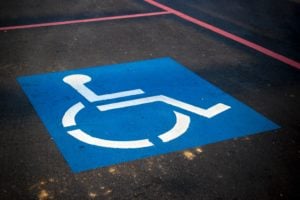 Just three short years ago Lorne and Barbara Reed were floating on air. Lorne had just gotten a new job in Red Deer, Alta.—making $75,000 a year—and the couple had bought a gorgeous 1,800-sq-ft bungalow with a small barn on a two-acre lot outside of town. Lorne, Barbara and their 13-year-old daughter Janet were happy in their new home, and everything was falling into place. Now that Lorne was pulling in a bigger income, Barbara could realize her long-held dream: she was going to open up her own business.
Just three short years ago Lorne and Barbara Reed were floating on air. Lorne had just gotten a new job in Red Deer, Alta.—making $75,000 a year—and the couple had bought a gorgeous 1,800-sq-ft bungalow with a small barn on a two-acre lot outside of town. Lorne, Barbara and their 13-year-old daughter Janet were happy in their new home, and everything was falling into place. Now that Lorne was pulling in a bigger income, Barbara could realize her long-held dream: she was going to open up her own business.
For years, Barbara had worked as an accountant for other people’s businesses, and she felt she had learned enough to open one on her own. “With Lorne’s new job and our move to a new community, I felt that the time was right for me to try,” she says. The plan was for Lorne to keep working full-time at his new truck mechanic’s job while Barbara set up a small shop selling seafood. “We had the big shrimp and lobster tails, as well as 85 other types of fish,” she recalls. “Alberta is beef country, but on opening day we did $13,000 in sales.”
For a while, the business thrived, but when the economy started to slip in 2008, it hit the seafood shop hard. The market for shrimp, lobster, and other expensive items began to dry up. Then, in 2009, when the recession proper started, “sales came to a standstill.”
To keep the business running, the couple cashed in $60,000 worth of their RRSPs and borrowed $90,000 against their home. They also borrowed $15,000 from their unsecured line of credit and $60,000 from the bank. Unfortunately it wasn’t enough. Their financing dried up, and last September the couple shut down the store. Closing day was gut-wrenching. “I cried,” says Barbara, now 44. “I loved every minute of being my own boss and would love to try running a business again some day. I really miss it.”
The couple was left with their finances in tatters and their dream of retiring at 55 destroyed. “I made myself three promises when I was 17,” says Lorne, now 45. “I promised myself I’d never sell my first car (a 1977 Plymouth Volare Road Runner with a T-roof), that I’d get married only once, and that I’d retire at 55. At this point, I don’t think I’ll be able to keep that last promise to myself.”
Earlier this year, the Reeds (we’ve changed their names and other details to protect privacy) ran the numbers to see just how devastated their finances were. What they found wasn’t pretty. They had borrowed a full $225,000 to support their business. On top of that, there were the lost wages. Before opening her shop, Barbara was making about $70,000 per year. But during the two-and-a-half years the shop was open, she didn’t pay herself a dime in salary, so she lost $175,000 she would have otherwise earned. Add it all up, and the Reeds’ seafood shop adventure cost them a whopping $400,000.
The Reeds now have only $90,000 in liquid investments, partly because they have had terrible luck with their investments. Several years ago, on the advice of a friend, the Reeds had hired an adviser at a large financial institution, but it didn’t work out well. They lost about $50,000 of their $130,000 investment, and three years ago when they went to cash in some mutual funds for money to invest in their seafood business, the Reeds were shocked to find that the adviser had been churning their account. He had been buying only funds with deferred sales charges (called DSCs)—big penalties that kick in when you sell your funds. The charges slowly drop to zero over six years, but once they did, the adviser would sell the funds off and buy new ones to start the deferred sales charge cycle all over again.
How the money is spent |
|
| Yearly disposable income |
|
| Lorne’s income |
$76,960 |
| Barbara’s income |
$65,000 |
| Minus: taxes |
|
| and other deductions |
– $41,687 |
| NET DISPOSABLE INCOME |
$100,273 |
|
|
| Yearly Expenses |
|
| Debt repayment |
|
| Credit card debt |
$6,873 |
| Total debt repayment |
$6,873 |
| Shelter |
|
| Mortgage on home (includes |
|
| property taxes) |
$20,557 |
| Home insurance |
$674 |
| Hyrdo/gas/water |
$3,739 |
| Cell phone/Internet/TV |
$2,500 |
| Home maintenance |
$600 |
| Total shelter |
$28,070 |
| Transportation |
|
| Leasing payments |
$10,585 |
| Car insurance |
$2,534 |
| Gas |
$3,000 |
| Maintenance |
$600 |
| Total transportation |
$16,719 |
| Personal |
|
| Groceries |
$3,600 |
| Clothes, haircuts, etc. |
$600 |
| Vacation |
$2,500 |
| Charity |
$100 |
| Gifts |
$1,500 |
| Restaurants |
$1,200 |
| Gardening supplies |
$500 |
| Miscellaneous |
$5,000 |
| Total personal |
$15,000 |
| TOTAL EXPENSES |
$66,662 |
| Annual income available for investment (total income minus total expenses) |
$33,611 |
|
|
“We now know that the adviser was just interested in making money off of us,” says Lorne. “When we finally pulled the plug on some of those funds, we paid a huge financial penalty for it—close to $4,000.” Coupled with the high management expense ratios of more than 2% that each of those funds carried, the Reeds figure they’ve paid tens of thousands of dollars in fees over the years without knowing it. Those losses coupled with the money they borrowed for the business have shattered their nest egg. “We realize that a lot of our dreams for the future may be gone,” says Barbara. “We have to rebuild our finances but we don’t know where to start—or even if it’s possible.”
Both Lorne and Barbara moved to Lethbridge, Alta., in 1988, hoping to get an education and better their lives—Barbara by pursuing an accounting diploma and Lorne an automotive mechanic’s license. “Living together while pursuing our studies made life hard financially,” says Barbara. “We had our gas cut off and sometimes couldn’t even afford groceries when our parents came to visit. They didn’t believe in helping us out. They believed that suffering made you stronger.”
The couple married in 1992, and their daughter Janet was born the following year. With Lorne working as a mechanic and Barbara as a bookkeeper, the couple bought their first home, which cost $250,000, in a small community 40 km west of Lethbridge.
Although life seemed to be going well, Lorne grew disenchanted with his career prospects in Lethbridge. So in 2005 he applied for a job in Red Deer with a mechanic’s shop that specialized in large trucks. The move increased his salary by $20,000 a year to $75,000 annually. Thrilled, the couple sold their home in Lethbridge and bought their current home in Red Deer for $348,000. Soon after, Barbara opened her seafood shop, and almost exactly one year ago, it went under.
Today, after cashing in as much as their savings as they could to pay down their debt, the Reeds owe a total of $352,637, including their mortgage. But paying down their debt isn’t the only expense on the horizon. Their daughter Janet is now 16 and she wants to go to the University of Toronto in two years. The Reeds figure that over the course of a four-year degree, they will have to pay close to $90,000, including living expenses. “We really want to pay for Janet’s university education,” says Lorne. “But saving for both retirement and Janet’s university costs is overwhelming us.”
Barbara has returned to work to help repair their finances, and she earns$65,000 as an accountant in a telecom company. Together, they pull in a gross income of $140,000 a year, giving them about $40,000 a year to invest after expenses and credit card debt repayment. But they aren’t sure how to put that money to work.
Then there’s the X-factor. Even though Barbara knows her first entrepreneurial escapade wreaked havoc, she wants to try again. She spends most of her free time investigating business opportunities, scouting out possible locations and suppliers. “I have friends calling me all the time with small business ideas and that just gets me all excited about being my own boss again,” says Barbara. “I learned so much during my years running the seafood business that I really think I could make it work this time.”
Not surprisingly, Lorne isn’t as keen on the idea as she is. He likes his job and feels that at this point in their life, the right path to increasing their nest egg may be to stick to good-salaried jobs and save as much as they can over the next few years. “I know
I can do it but Lorne isn’t so sure,” says Barbara. “I’ve failed once but really think I can come through for us this time. Am I crazy for thinking that I can make a small business work the second time around?”
What the experts say
Even after losing almost all of their life savings, Barbara still feels exhilarated by the idea of running another business. There’s a reason for this. “You learn something new every day when you’re your own boss,” says Rick Spence, a marketing consultant in Toronto who helps entrepreneurs grow their businesses. “There’s dozens of unique challenges and you gain confidence with every new decision you make. It’s very empowering.”
However, the truth is that up to 75% of small businesses don’t survive past the first five years. And if, like the Reeds, a couple starts a business without first drawing up a proper business plan or without the start-up capital to keep it going through tough economic times, it can have devastating consequences. “Most people who fail at their business generally know what they are doing but are undercapitalized,” says Alfred Feth, a fee-for-service financial planner in Waterloo, Ont. Feth knows what he’s talking about because he failed at two small businesses of his own before making a success of a third one—a small radio communications business that he eventually sold for a healthy profit to cell phone company Clearnet Communications.
Where they stand |
|
| Assets |
|
| Home |
$560,000 |
| Lorne’s RRSP |
$5,591 |
| Barbara’s RRSP |
$23,153 |
| Janet’s RESP |
$13,831 |
| Ford Taurus (2008) |
$30,000 |
| GMC 1500 (1994) |
$800 |
| Janet’s Neon (1997) |
$2,000 |
| Savings |
$54,050 |
| Chequing |
$4,623 |
| Total assets |
$694,048 |
| Liabilities |
|
| Mortgage on home |
$319,764 |
| Buyout of car lease due Nov. 2010 |
$26,000 |
| Credit card debt |
$6,873 |
| Total Liabilities |
$352,637 |
| Net Worth (total assets minus total liabilities) |
$341,411 |
|
Spence and Feth feel the couple should give it another shot, even though the first attempt almost destroyed their finances. Besides the fact that owning your own business is a proven path to becoming truly wealthy—the financial payoff is huge if you can do it right—Barbara has learned a lot from their failure and she is more likely to succeed the second time around. “Entrepreneurship is in Barbara’s blood,” says Spence. “It’s obvious that the couple knows what their mistakes were. I think if they can build up their nest egg by another $100,000—that will probably take them about three years—then at that time they should give another business a try. But it should be a small business that they can easily capitalize.”
Before they get to that point though, the Reeds need to prioritize their goals. Those goals are: to rebuild their savings to the point where they could finance a new start-up, to help their daughter Janet with her post-secondary expenses, and to get their retirement plan back on track. Here’s what the Reeds need to do.
Pay off their debt. Right now the couple has $32,873 in credit card and car lease debt. They should use the money from their savings account to pay this off. They can’t afford any debt besides their mortgage if they’re serious about retirement. This will allow them to save $40,000 a year, starting next year.
Split the university costs. Right now, the couple has $13,831 in a Registered Education Savings Plan (RESP) for Janet. The Reeds should combine that with the $21,177 that will be left in their savings account once they pay off their personal debt. That will total $35,008 that they should give to Janet for her university studies. She should pay for the rest herself. “You want to help your kids but you don’t want to give them the keys to the vault,” says Feth. “This will allow them to focus on building their own retirement savings.”
Aim for freedom 60. Even if they save $40,000 every year for the next 10 years, the couple still will not be able to retire at 55. With 4% to 5% returns on their money, they may have a nest egg worth only about $500,000. It’s not enough to retire early with. Feth suggests that a better idea may be to retire at age 60. That will add an extra $200,000 to their nest egg and if they start collecting their Canada Pension Plan and Old Age Security then, they will likely have enough for a comfortable retirement.
Fix their investment portfolio. The first thing the Reeds should do is dump their financial adviser. “He’s a crook,” says Feth. “They need a better adviser.” To find one, the Reeds should pick three local fee-only planners and conduct interviews until they find one they feel comfortable with. Meanwhile, they might look at getting some compensation for the losses they endured. “Churning of accounts goes on all the time,” says Feth. “They should take their case to either the Ombudsman for Banking Services and Investments or to Advocis (The Financial Advisors Association of Canada), if their adviser was a certified financial planner.”
Pick their next business wisely. While it’s true that the Reeds can’t afford to make another business mistake, Spence feels they’ve learned a lot and should try opening another business once they’ve accumulated $150,000 or so total in their retirement accounts. “Had there been no recession, I really believe their business could have survived,” says Spence. “They were going from two incomes to one so there was really no margin for error.”
The couple has three choices. Barbara could start a part-time accounting business on weekends, an Internet business with low start-up and overhead costs, or a small franchise. “Franchises give you a business model that’s already successful,” says Spence. “They cover all the details for you. Some, such as a small rug cleaning business, are very affordable and start as low as $20,000.”
Whatever the Reeds decide to do, they should consider joining a business networking group in their community, such as BNI. If they become members, over the next few years they could learn a lot from the business people in these groups. “So when they finally open another business, they will be better prepared for the challenges they will be taking on,” says Spence.
 Just three short years ago Lorne and Barbara Reed were floating on air. Lorne had just gotten a new job in Red Deer, Alta.—making $75,000 a year—and the couple had bought a gorgeous 1,800-sq-ft bungalow with a small barn on a two-acre lot outside of town. Lorne, Barbara and their 13-year-old daughter Janet were happy in their new home, and everything was falling into place. Now that Lorne was pulling in a bigger income, Barbara could realize her long-held dream: she was going to open up her own business.
Just three short years ago Lorne and Barbara Reed were floating on air. Lorne had just gotten a new job in Red Deer, Alta.—making $75,000 a year—and the couple had bought a gorgeous 1,800-sq-ft bungalow with a small barn on a two-acre lot outside of town. Lorne, Barbara and their 13-year-old daughter Janet were happy in their new home, and everything was falling into place. Now that Lorne was pulling in a bigger income, Barbara could realize her long-held dream: she was going to open up her own business. 









